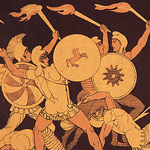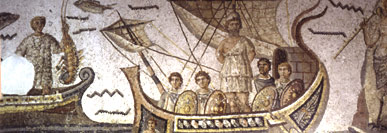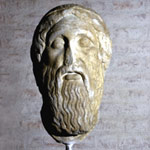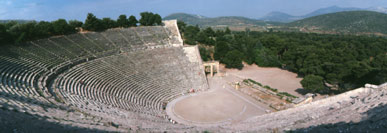 |
| A 19th Century painting of a scene from the Iliad in the style of Greek vase painting. |
 Story-telling
played an enormous part in the entertainment of ordinary Greeks, from the
second millennium BC right up to the start of the archaic period. With low
levels of literacy, tales of myth and legend were recited from memory around
the fire and passed on from generation to generation.
Story-telling
played an enormous part in the entertainment of ordinary Greeks, from the
second millennium BC right up to the start of the archaic period. With low
levels of literacy, tales of myth and legend were recited from memory around
the fire and passed on from generation to generation.
The greatest of these epic poems were the Iliad, which told of the Trojan War and the Odyssey, which relayed the adventures of the hero Odysseus on his way back from the war. Although these poems were the result of hundreds of years’ of performance, they were first written down around 750BC. This final form is attributed to Homer, a blind poet from Anatolia of whom we know very little. But whether he even existed or not, his stories continue to fascinate us.

